The Most Common Frequently Asked Questions About Small Fibreglass Pools
The popularity of fibreglass pools is on the rise. Even though compared to concrete and vinyl liner pools, fibreglass pools are relatively new, they are still becoming one of the top choices for a lot of homeowners. If you are thinking about installing a small fibreglass pool at your home, you might have a lot of questions. In this article, we have answered some of the most common questions about small fibreglass pools.
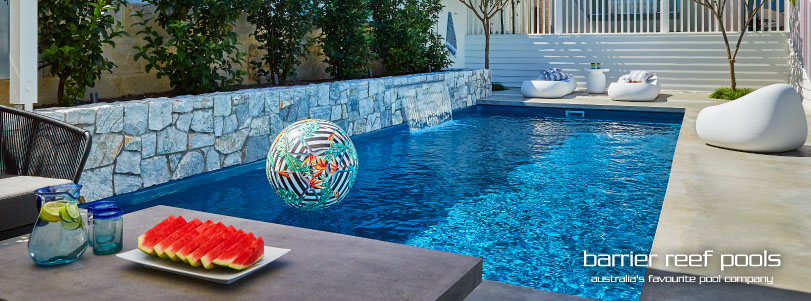
Let's See What Questions Are Asked!
1. How Are Fibreglass Pools Manufactured?
In order to manufacture a fibreglass pool, several layers of materials are combined, such as chopped fibreglass, fibreglass with polyester resin, structural honeycomb materials, a gel coat, and a vinyl ester resin layer. All these layers are stacked over one another. After the shell has been cured, depending on your specifications, it is trimmed. With every layer of material, quality is added to the pool. For example, the chopped fibreglass layer provides additional strength to the shell. The structural honeycomb layer provides additional support to the tension points. With the vinyl ester resin layer, you get corrosion resistance and waterproofing qualities. The gel coat ensures that the surface of the pool is smooth. When all these materials are combined, the end result is extremely flexible and durable.
2. How Is A Small Pool Different?
If you have a small backyard, you need a small pool like a plunge pool. Traditional small fibreglass pools are of gradual depth. However, a plunge pool is of one depth. Once you get in, you get right to the deep end. In most cases, the deep end is about shoulder height.
3. What Is Considered To Be A Small Pool?
The definition of a small pool varies. In most cases, any pool that has a length of fewer than 7 metres and a width of fewer than 3.5 metres is considered to be a small pool. If you go for a lap pool, it might not be as small as it is long and narrow. However, it can still fit into backyards that have limited space. In terms of depth, most small pools are about 1.2 metres deep. Lap pools are about 1.5 metres in depth.
4. Is A Fibreglass Pool Durable?
Some people believe that fibreglass pools are prone to damage and are delicate. However, this is not the truth. Fibreglass pools are manufactured using different layers of materials giving them superior durability and strength. Also, since they are flexible, the risk of cracking is reduced. If you maintain it properly, small fibreglass pools can last for about 50 years. You might have to replace the gel coat in a few decades.
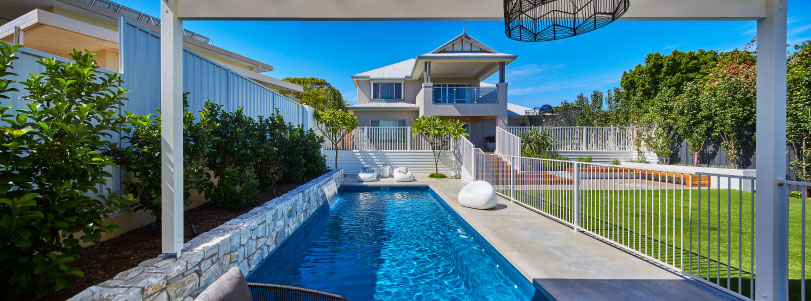
5. Why Should You Go For A Small Pool?
Due to reducing block sizes, the popularity of small fibreglass pools has increased in the past few years. Even if you have a small backyard, it doesn’t mean that you have to compromise on your dream of having a swimming pool. What you need to do is not let go of your dream and instead, choose a small pool that can accommodate your backyard. Here are some other benefits of getting a small fibreglass pool:
- Since they are small in size, heating them won’t take a lot of time, which will save you money.
- The cost of robotic cleaners and pool covers will be less.
- Most small pools have a lot of bench seating as they are mainly used to relax. You can combine it with spa jets to have your own spa in your backyard.
- With small pools, you won’t have to use a lot of water, which is beneficial for your finances and the environment.
- You don’t need very powerful equipment to run your small pool.
- The quantity of chemicals used for maintaining the pool is less.
- You can have all the quality features you want in a small pool.
- With a small pool, you will have enough space to add other things to your backyard, such as an entertainment area.
6. Can You Exercise In A Small Fibreglass Pool?
Some people use their swimming pool only for fun, while others use it for exercise. Even though small fibreglass pools have limited space, you can still exercise in them. For instance, a plunge pool has a consistent depth which makes it the perfect option for underwater fitness equipment and low-impact aerobics. Because of the water’s buoyancy, you will be able to relieve some pressure off your joints and muscles. This works great for people who have fibromyalgia or asthma. Also, the water resistance in the plunge pool ensures that you have a great workout.
7. Do Small Pools Cost Less?
This is a common question that people have about small fibreglass pool installation. It is true that to install a small fibreglass pool, less excavation will be required. However, the installer will still have to bring in the same equipment to finish the job. So, yes, the cost may be less, but probably not as much as you might think.
8. Can You Install A Small Pool Above Ground?
Yes, it is possible to install small pools above ground or partially above ground. In fact, if your backyard has an awkward layout or is sloping, this will work better.
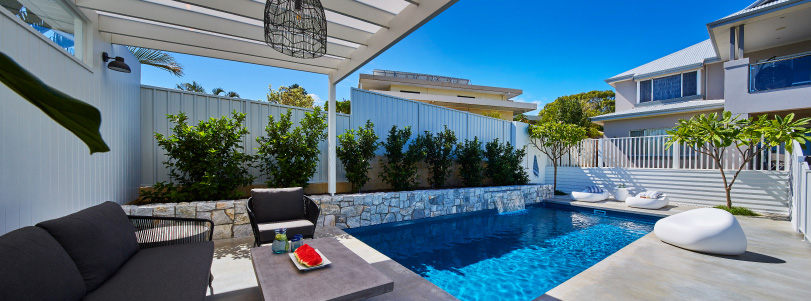
9. Is The Running Costs For A Small Pool Less?
Yes. To run a small fibreglass pool, you won’t need very powerful equipment. Since the volume of the water is less, circulating it won’t take as long. Your pump won’t be running for long, which is the biggest energy consumer of your pool equipment. Having a small fibreglass pool means that your cleaning time and chemical use will be reduced. Since heating it won’t take long, the heating costs will be reduced as well. If you use a robotic cleaner for cleaning your pool, it won’t have to run for as long.
10. How Long Does A Small Fibreglass Pool Installation Take?
A small fibreglass pool comes pre-built. So, installing them won’t take long. Depending on the delays in permits and weather, a small fibreglass pool can be installed in the range of 7 days to 3 weeks.
Conclusion
So, these were some of the most frequently asked questions about small fibreglass pools. Hope that these will help clear your queries allowing you to get your pool installed in no time.
The Most Common Frequently Asked Questions About Small Fibreglass Pools
The popularity of fibreglass pools is on the rise. Even though compared to concrete and vinyl liner pools, fibreglass pools are relatively new, they are still becoming one of the top choices for a lot of homeowners. If you are thinking about installing a small fibreglass pool at your home, you might have a lot of questions. In this article, we have answered some of the most common questions about small fibreglass pools.
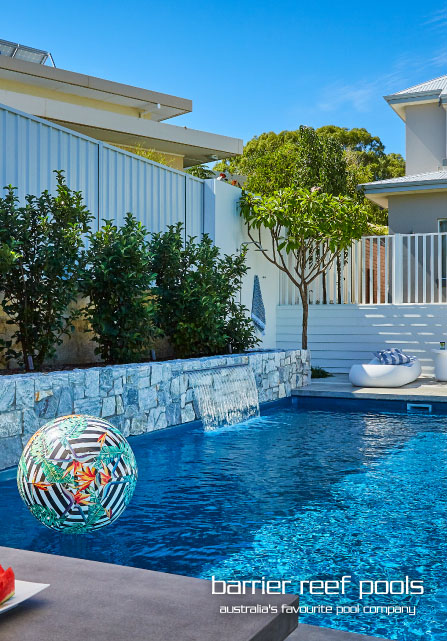
Let's See What Questions Are Asked!
1. How Are Fibreglass Pools Manufactured?
In order to manufacture a fibreglass pool, several layers of materials are combined, such as chopped fibreglass, fibreglass with polyester resin, structural honeycomb materials, a gel coat, and a vinyl ester resin layer. All these layers are stacked over one another. After the shell has been cured, depending on your specifications, it is trimmed. With every layer of material, quality is added to the pool. For example, the chopped fibreglass layer provides additional strength to the shell. The structural honeycomb layer provides additional support to the tension points. With the vinyl ester resin layer, you get corrosion resistance and waterproofing qualities. The gel coat ensures that the surface of the pool is smooth. When all these materials are combined, the end result is extremely flexible and durable.
2. How Is A Small Pool Different?
If you have a small backyard, you need a small pool like a plunge pool. Traditional small fibreglass pools are of gradual depth. However, a plunge pool is of one depth. Once you get in, you get right to the deep end. In most cases, the deep end is about shoulder height.
3. What Is Considered To Be A Small Pool?
The definition of a small pool varies. In most cases, any pool that has a length of fewer than 7 metres and a width of fewer than 3.5 metres is considered to be a small pool. If you go for a lap pool, it might not be as small as it is long and narrow. However, it can still fit into backyards that have limited space. In terms of depth, most small pools are about 1.2 metres deep. Lap pools are about 1.5 metres in depth.
4. Is A Fibreglass Pool Durable?
Some people believe that fibreglass pools are prone to damage and are delicate. However, this is not the truth. Fibreglass pools are manufactured using different layers of materials giving them superior durability and strength. Also, since they are flexible, the risk of cracking is reduced. If you maintain it properly, small fibreglass pools can last for about 50 years. You might have to replace the gel coat in a few decades.
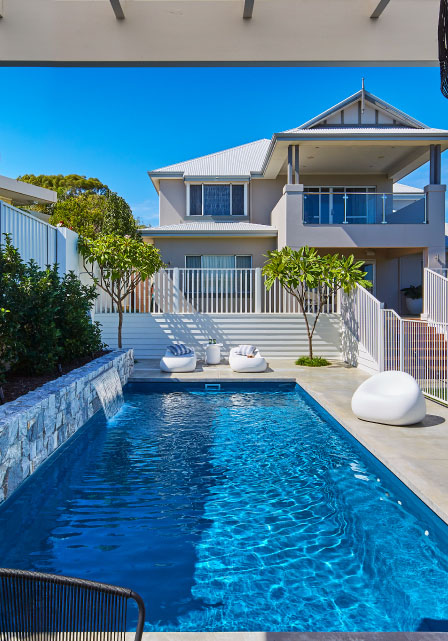
5. Why Should You Go For A Small Pool?
Due to reducing block sizes, the popularity of small fibreglass pools has increased in the past few years. Even if you have a small backyard, it doesn’t mean that you have to compromise on your dream of having a swimming pool. What you need to do is not let go of your dream and instead, choose a small pool that can accommodate your backyard. Here are some other benefits of getting a small fibreglass pool:
- Since they are small in size, heating them won’t take a lot of time, which will save you money.
- The cost of robotic cleaners and pool covers will be less.
- Most small pools have a lot of bench seating as they are mainly used to relax. You can combine it with spa jets to have your own spa in your backyard.
- With small pools, you won’t have to use a lot of water, which is beneficial for your finances and the environment.
- You don’t need very powerful equipment to run your small pool.
- The quantity of chemicals used for maintaining the pool is less.
- You can have all the quality features you want in a small pool.
- With a small pool, you will have enough space to add other things to your backyard, such as an entertainment area.
6. Can You Exercise In A Small Fibreglass Pool?
Some people use their swimming pool only for fun, while others use it for exercise. Even though small fibreglass pools have limited space, you can still exercise in them. For instance, a plunge pool has a consistent depth which makes it the perfect option for underwater fitness equipment and low-impact aerobics. Because of the water’s buoyancy, you will be able to relieve some pressure off your joints and muscles. This works great for people who have fibromyalgia or asthma. Also, the water resistance in the plunge pool ensures that you have a great workout.
7. Do Small Pools Cost Less?
This is a common question that people have about small fibreglass pool installation. It is true that to install a small fibreglass pool, less excavation will be required. However, the installer will still have to bring in the same equipment to finish the job. So, yes, the cost may be less, but probably not as much as you might think.
8. Can You Install A Small Pool Above Ground?
Yes, it is possible to install small pools above ground or partially above ground. In fact, if your backyard has an awkward layout or is sloping, this will work better.
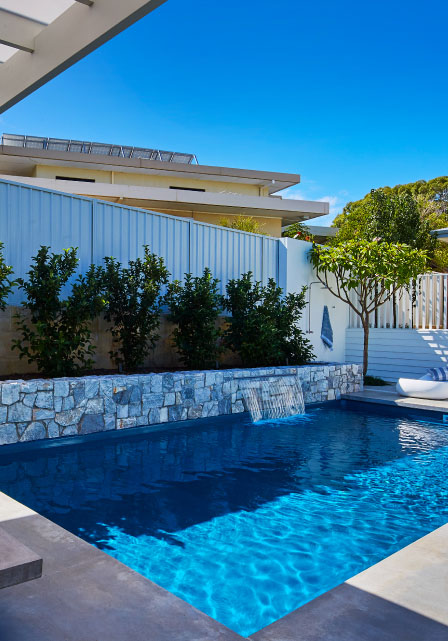
9. Is The Running Costs For A Small Pool Less?
Yes. To run a small fibreglass pool, you won’t need very powerful equipment. Since the volume of the water is less, circulating it won’t take as long. Your pump won’t be running for long, which is the biggest energy consumer of your pool equipment. Having a small fibreglass pool means that your cleaning time and chemical use will be reduced. Since heating it won’t take long, the heating costs will be reduced as well. If you use a robotic cleaner for cleaning your pool, it won’t have to run for as long.
10. How Long Does A Small Fibreglass Pool Installation Take?
A small fibreglass pool comes pre-built. So, installing them won’t take long. Depending on the delays in permits and weather, a small fibreglass pool can be installed in the range of 7 days to 3 weeks.
Conclusion
So, these were some of the most frequently asked questions about small fibreglass pools. Hope that these will help clear your queries allowing you to get your pool installed in no time.



